Perfect Basmati Rice in Rice Cooker
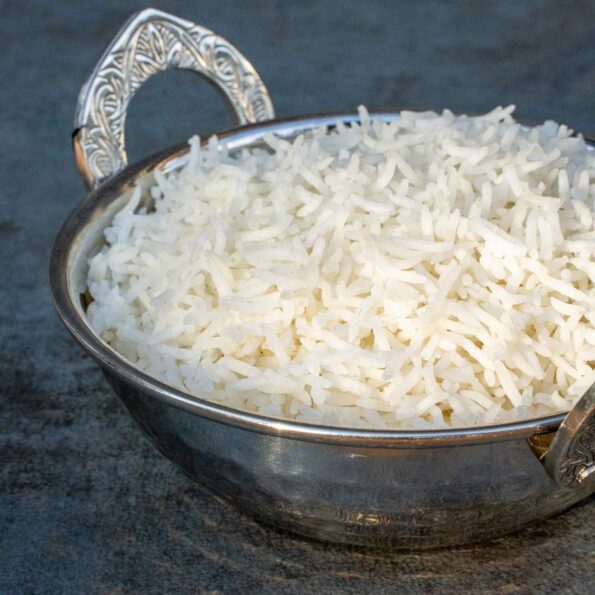
Cook perfect Basmati Rice in your rice cooker with this foolproof hassle-free recipe. I got the right ratio for it, and all the tips and tricks you need to make fluffy, delicious rice.
If you didn’t already guess that from my blog name Hungry Lankan, I’m Sri Lankan (living in the US now) and I eat rice every single day! We love rice and sometimes have rice and curries for all three meals. If there’s a way to cook rice, I‘ve tried it all. If you need the perfect recipe for Basmati Rice in Rice Cooker, trust me you’re in good hands! I got everything about cooking basmati rice in this recipe and the description.
Tips for Cooking Perfect Rice Every Time
Choose High-Quality Basmati Rice
For truly amazing rice, start with high-quality rice. To choose high-quality Basmati rice, look for extra-long, slender grains, and a slight golden hue, as pure white rice may be over-polished. Aged rice, preferably for at least a year, has better flavor and aroma. High-quality Basmati rice should have a distinct, nutty aroma and minimal broken grains. Opt for reputable brands that you can usually find in Indian grocery stores. High-quality brands are usually a little expensive. I added a few of the brands I recommend at the end of the description.
Rinse Your Rice
Even if you have the best quality Basmati rice, rinsing it is a must! Rinsing removes impurities and the extra starch that makes rice sticky and mushy. Wash the rice until the water runs less cloudy and drain it well. This step is key to perfect, fluffy rice. I know many people say wash the rice until water runs clear but washing rice too much can actually break the rice grains. I only wash the rice until the water becomes less cloudy. Usually about 3 - 4 times.
Master the Rice-to-Water Ratio
Getting the rice-to-water ratio right is essential for perfect rice. Forget the 1 cup rice to 2 cups water ratio from Western cookbooks—it often leads to overcooked, mushy rice. Instead, try these ratios. You don't have to use the exact measurements but use this as a guideline. Depending on how old and dry the rice is, you may want to add a tad bit more water to get the rice to the texture you like, but this ratio is a very good base point to start with.
- For softer rice, use 1 cup rice to 1.5 cups water. This means, that for every 2 cups of washed rice, add 3 cups of water.
- For firm rice, use 1 cup rice to 1.25 - 1.3 cups water. This means, that for every 4 cups of washed rice, add 5 cups of water.
The one-knuckle method, popular in Asian cultures, isn't always accurate, especially when cooking smaller amounts of rice in larger pots. Stick with these ratios for consistently great results.
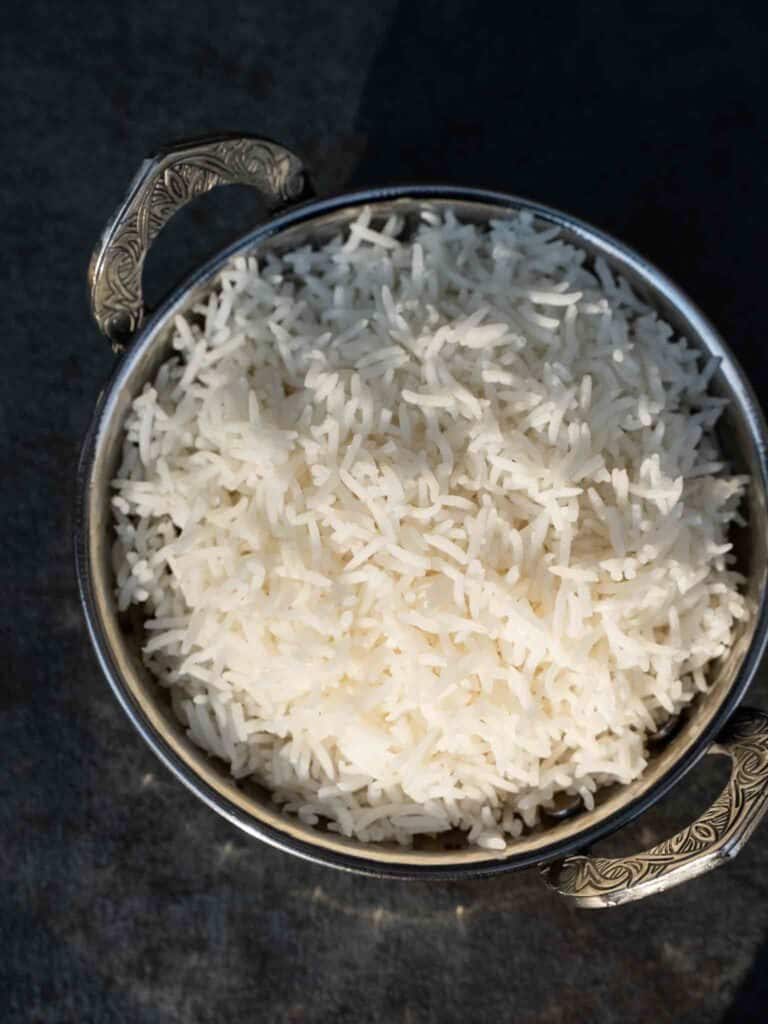
Can I cook rice in the instant pot?
Oh easily! You must reduce the amount of water you add since it’s a pressure cooker. I usually go with 1 cup washed rice: 1 cup water ratio.
Cooking rice in a traditional pressure cooker:
This is the quickest method to cook rice as far as I have tried. Use 1 washed rice: 1 cup ratio for this. Cook on medium heat until you hear two whistles. And then turn it off. Wait until the pressure comes down naturally. Do not lift the knob to remove pressure.
Rice Cooker Cup vs. Standard Cup Measurement
This can be confusing. Rice cookers come with their own measuring cups, which are usually 3/4 of a standard 240ml cup. So if a rice cooker says it can cook 3 cups of rice, it means 3 rice cooker cups (which equals 2.25 standard cups). Keep this in mind when you follow other recipes, when buying rice cookers, and when you decide on serving sizes when cooking.
In all my rice recipes, including this Jasmine rice and Yellow rice recipe, when I say use a cup, I mean a standard 240ml cup.
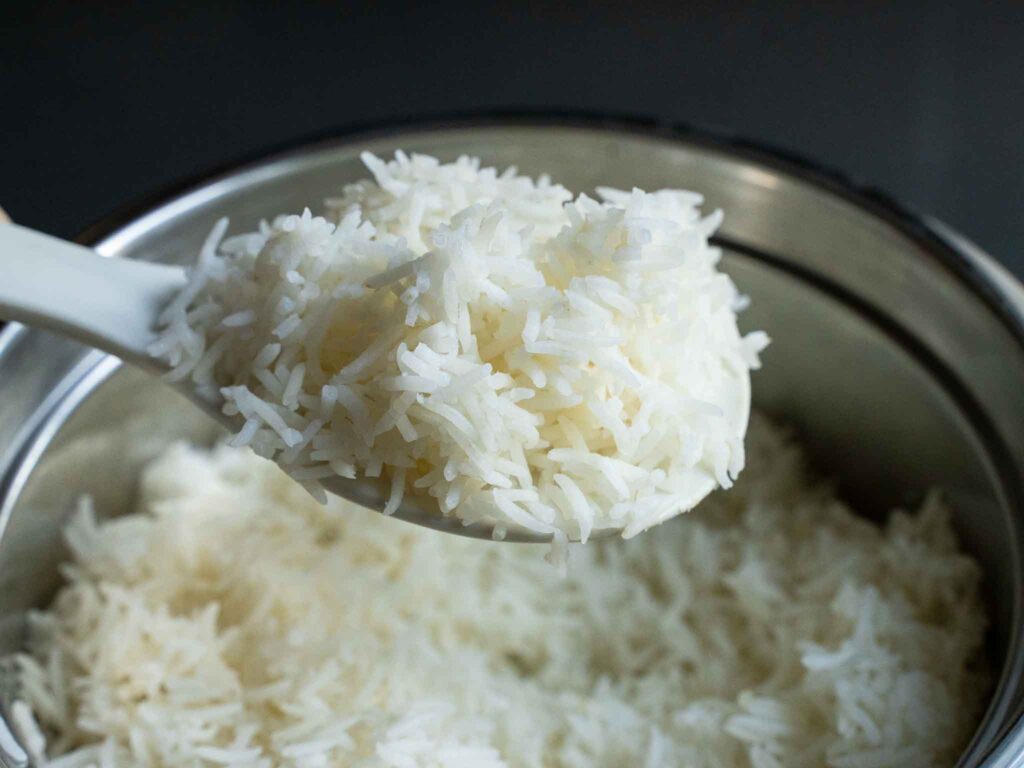
Optional Additives, and Flavorings:
Salt:
I almost always add salt to my rice. The rice tastes so much better when the salt is added. But if you’re planning to serve it with something salty, you can always skip adding salt to rice.
Butter/Ghee/Oil:
Since I eat rice very frequently I usually don’t add Butter, ghee, or oil. You can make nice fluffy rice without any fat or oil. But if you’re planning to make fried rice or you like the flavor of the rice with butter or ghee, you can definitely add them. It will also help to keep the rice grains separated.
Spices:
Spices such as Cardamom, Cloves, Cinnamon, Turmeric, Cumin, and saffron can also be used in the recipe to add certain aromas, colors, and flavors. I don’t use them when I make plain basmati rice.
Herbs/Aromatics:
You can also add curry leaves, Pandan leaves, Bay leaves, Sauteed onions, Garlic, and ginger to add flavor and aroma to the rice. I usually add them when I make specialty rice such as yellow rice, ghee rice, or saffron rice.
Recipe Video
(Vidoe won't appear if an ad blocker is on)
Serving suggestions:
1 cup of uncooked basmati rice yields 2.5 - 3 cups of cooked rice which is enough for 2 - 3 servings.
I love serving Basmati rice with curries. You might like to try my
You can make Fried Rice with it too or use it in your rice bowls or burritos.
** Contain Amazon affiliate links
The Rice Cooker I Use
If you eat rice frequently, a good rice cooker can be a game-changer in the kitchen. You don't need to splurge on a $200 Zojirushi. I use a more affordable 1.2 qt Aroma Rice Cooker, and it cooks perfect Basmati rice every time. Plus, it features a stainless steel inner pot.
Basmati Brand Recommendations:
The only recipe and the correct ratio you need to make the best fluffy and delicious Basmati Rice in your rice cooker. I added all the tips and info you need too.
- 1 Cup Basmati Rice
- 1.5 Cups Water
- 1/2 tsp Salt (Adjust as needed)
- 1/2 tsp Oil/Ghee (Optional)
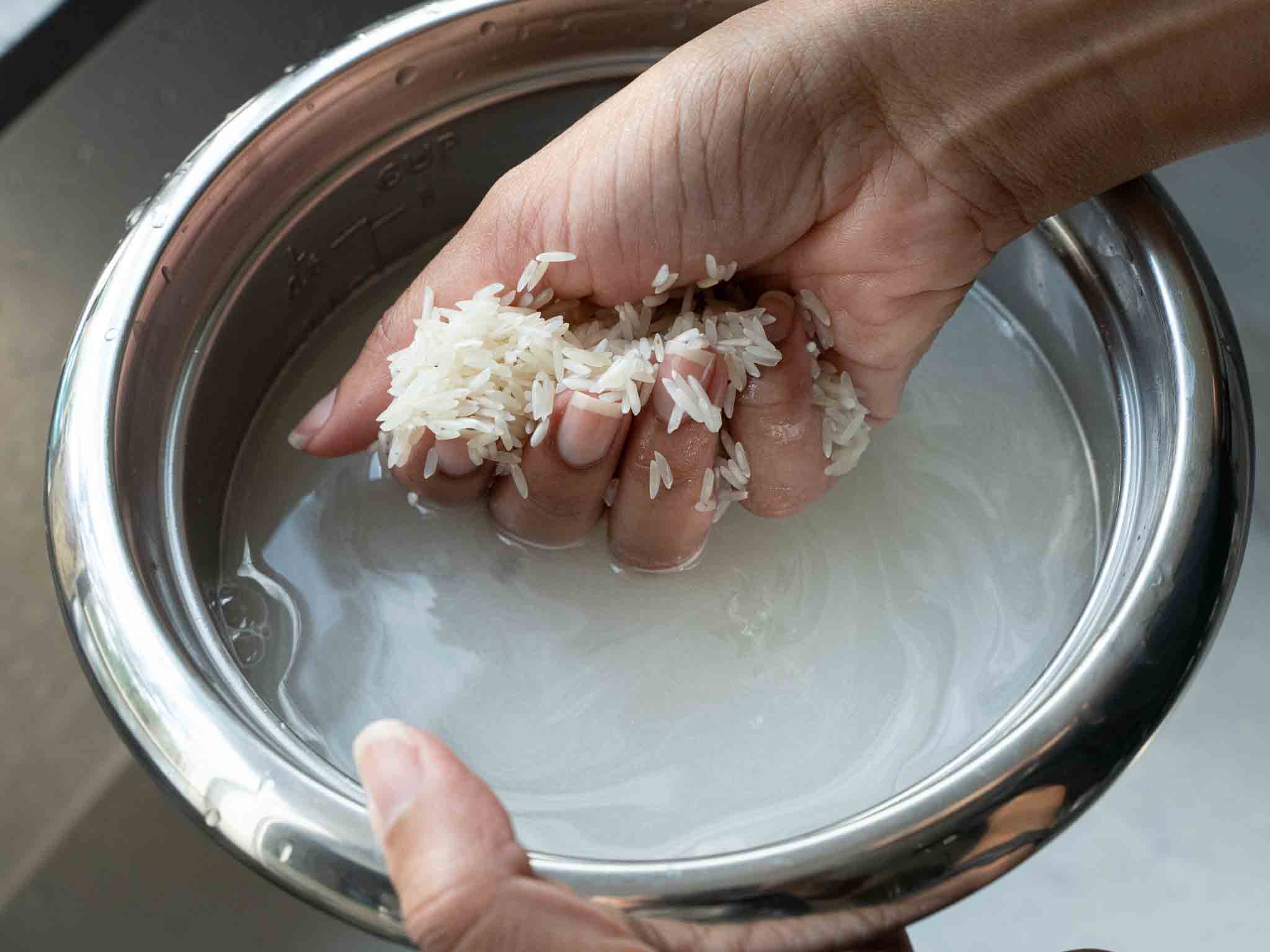
Add rice to the removable rice cooker inner pot. Wash Basmati rice about 3 times or until the water is not cloudy. Rub and stir the rice grains with your fingers while washing, it helps to loosen up the excess starch coating the grains.
It's not necessary to wash the rice grains until water runs clear. Washing rice too much can make the rice grains break into pieces.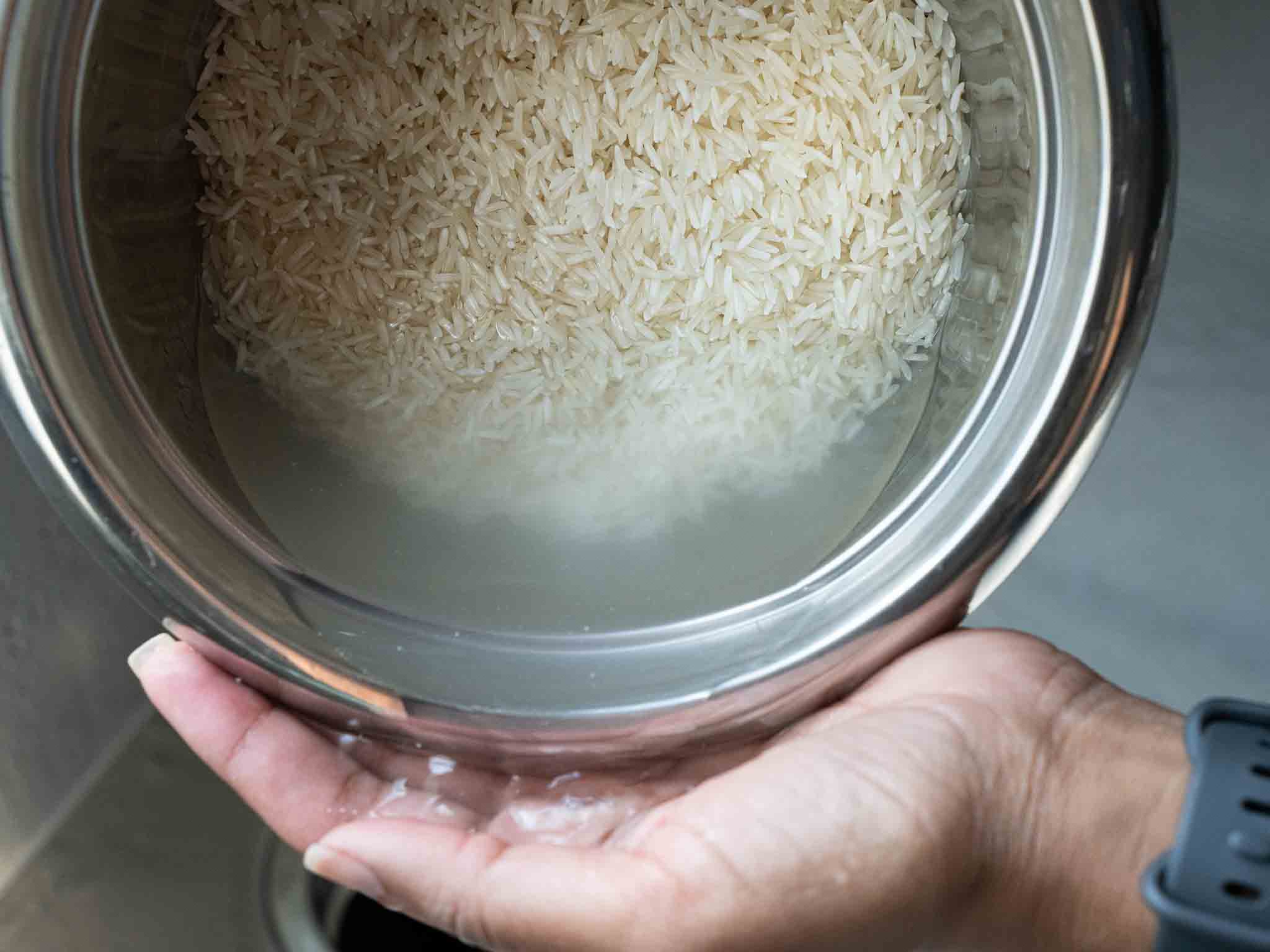
Use your hand as a colander and tilt the pot to drain all water from your rice. It's okay if there is a little bit of water left after draining.
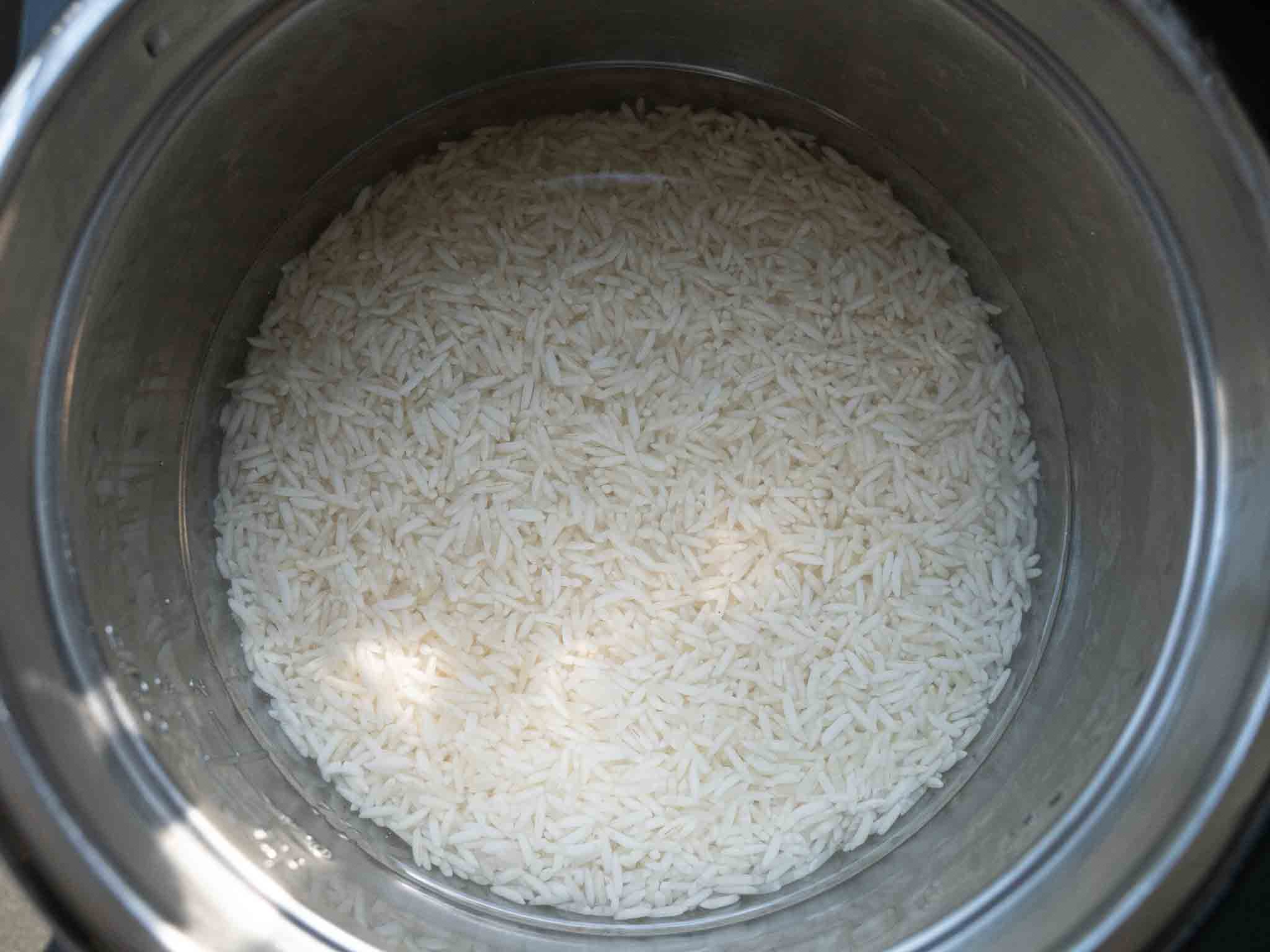
Measure and add water to the rice. (1 cup rice: 1.5 cups water ratio for soft rice. 1 cup rice: 1.3 cups water for firm rice, especially if you plan to make fried rice). Also, add salt and oil if you prefer.
Oil helps to keep the rice grains separated and make them less sticky. But you can make good fluffy rice without any added oil too.wipe the bottom of the rice cooker's inner pot if it's wet. Place it in the rice cooker, cover it with the lid, and turn on the cook button.
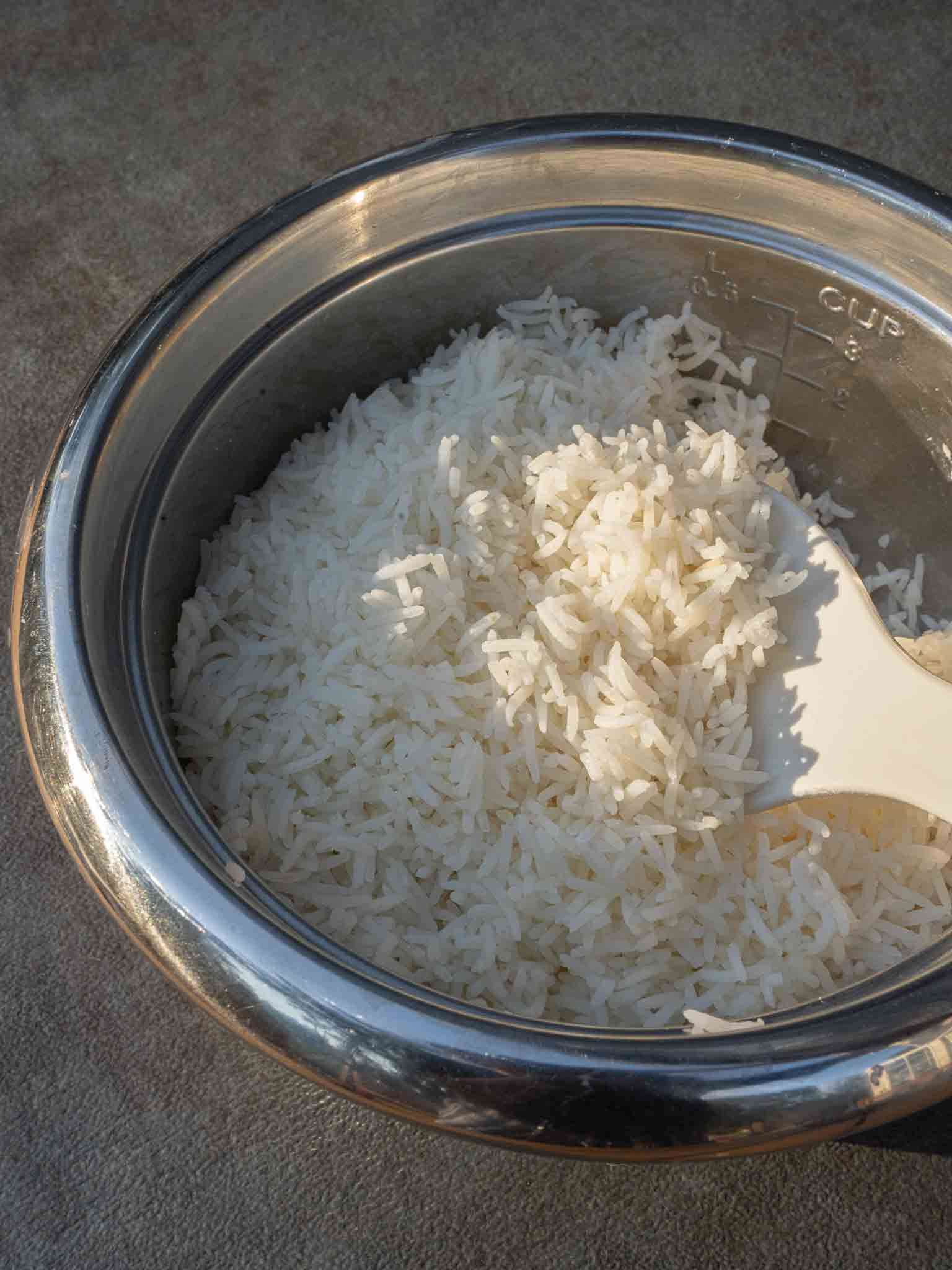
Your rice is done when the "cook" button is automatically turned off or the "warm" button is turned on. Let it sit for 5 - 10 minutes before serving. Rice grains firm up a little bit as it cools. Gently fluff up the rice with a spoon before serving.
